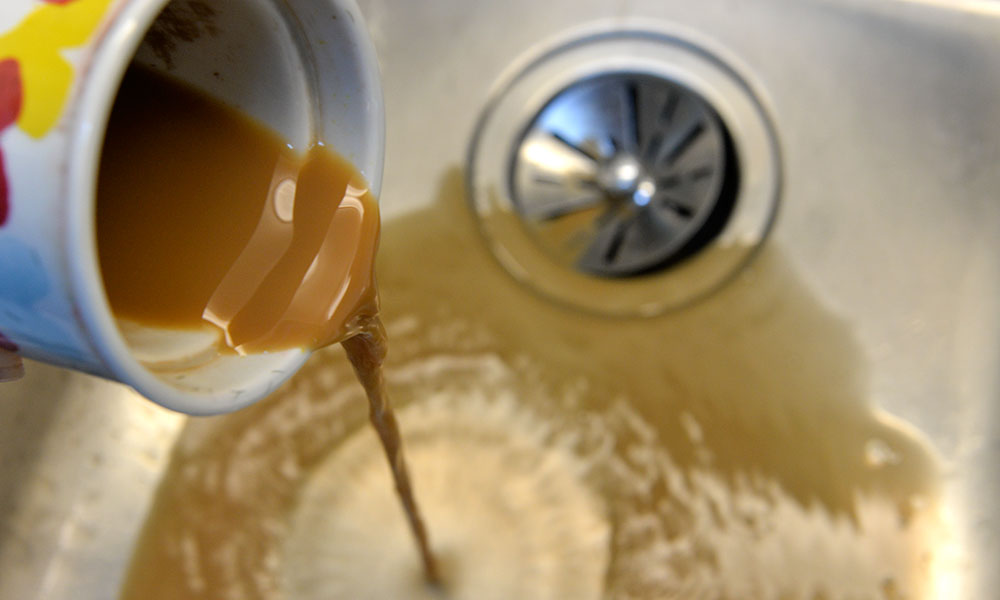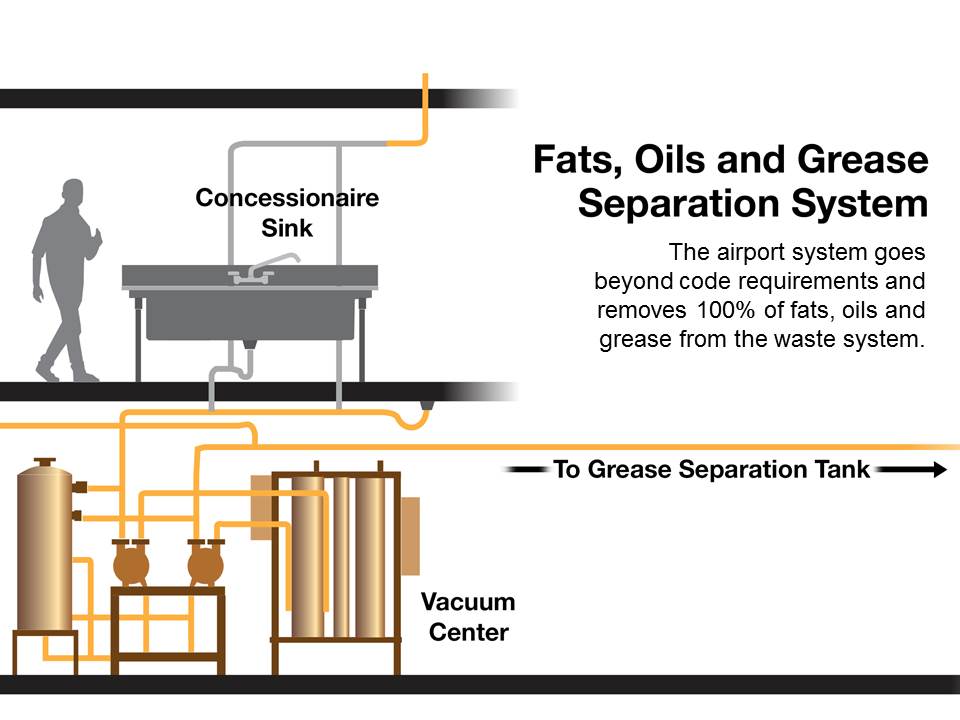
Food waste can easily clog wastewater lines, causing costly repairs. What’s the culprit? Fats, oils and greases, which are collectively known as FOG. Coffee shops, due to the fat in milk and cream, can be a big source of this pipe-clogging wastewater, along with other food concessions. FOG may also get into the waste stream during dishwashing.
The City of Portland estimates it spends about $12 million a year to treat wastewater containing food waste. To address the issue, the City of Portland Bureau of Environmental Services established new regulations on commercial business. To meet code, every PDX concessionaire must be hooked up to a FOG removal system by 2020.
The good news is that PDX is three-years ahead of schedule! Port engineers recently completed the installation of a cutting-edge FOG removal system using vacuum technology – the first-time ever applied in an airport.
The system removes all FOG from the waste stream. Everything else goes into the sanitary sewer. The project is part of a $19 million project to upgrade all utilities for PDX concessions.
In doing the project, PDX went beyond what the City called for, including food prep sinks, floor sinks and floor drains. The system takes care of all FOG besides liquid cooking oil, which is already being recycled at the airport’s newly designed central waste collection area.

The system includes piping, pumps and tanks. The vacuum system is above-ground and overcomes gravity to remove the FOG.
The next time you cook or do dishes, remember to remove the FOG and prevent it from going down the drain to keep Portland’s wastewater systems working efficiently.
